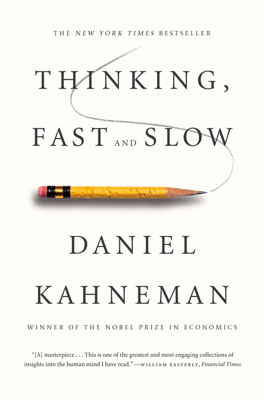Expert Intuition: When Can We Trust It?
Trust in Expert Intuition
Expert intuition can be trusted when two key conditions are met: the environment must be sufficiently regular to be predictable, and there must be an opportunity for the expert to learn these regularities through prolonged practice. Examples include chess (due to its structured environment) and medical operations where the process is orderly and feedback on actions is quick.
Different Perspectives on Intuition
The dialogue between Daniel Kahneman and Gary Klein explored whether professionals' intuitions are reliable. Klein, who emphasizes understanding intuitive decisions in real-world settings, believes in the expertise developed through actual experience, whereas Kahneman is cautious due to the common occurrence of cognitive biases and the overestimation of intuitive skills, especially in complex or unpredictable environments.
Intuition in Regular vs. Low-Validity Environments
Skill acquisition and trust in intuition are deemed appropriate in environments that provide regular, clear cues and immediate, actionable feedback (like firefighting or anesthesiology). However, in unpredictable or 'wicked' environments, like stock trading or political forecasting, relying on intuition can lead to errors and misjudgments, as the cues are often misleading or absent.
Limits and Recognition of Expertise
Experts may not always recognize the limits of their expertise. They may be adept in specific areas of their profession but overestimate their intuition in others which have not provided sufficient opportunity to learn reliable cues. This misjudgment is enhanced by the subjective confidence that individuals often place in their intuitive skills, regardless of the actual validity.
Feedback Mechanisms and Learning
The quality and immediacy of feedback are vital for the development and reliability of effective intuitive skills. Fast and clear feedback enhances the ability to make accurate intuitive judgments. Professions that allow for immediate responses to actions enable better and more reliable skill development compared to fields where feedback is delayed or ambiguous.
Assessment of Intuitive Expertise
To evaluate the validity of professional intuitions, it is more effective to analyze the environment and the expert's exposure to it rather than to assess the intuitive judgment itself. Trust should be based on the conditions under which the intuition was formed, especially focusing on how structured the environment is and how much practice the expert has had within it.
Reflection on Differential Trust in Intuitions
Despite reaching conceptual agreement, Kahneman and Klein retained differing emotional and subjective perspectives on intuition, reflecting their individual experiences and engagements with different professional contexts that color their view on the reliability of human intuition. Their collaboration emphasized the complexity in assessing when and how much to trust expert intuition.
